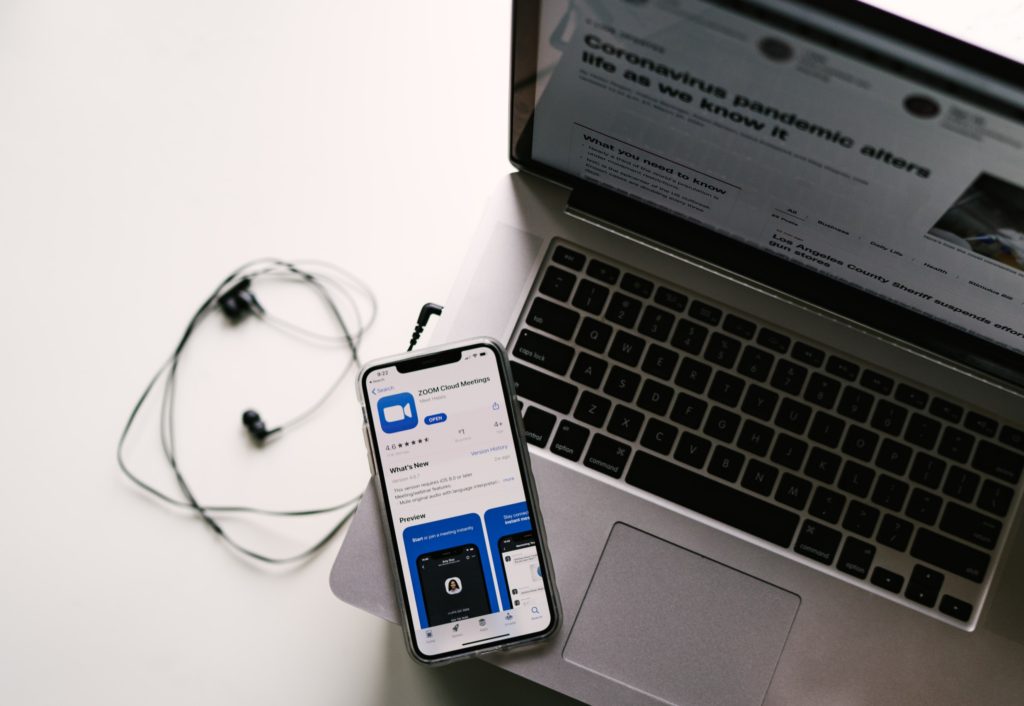
Like many graduate students, the last two years of my graduate career have largely consisted of preparing for my dissertation proposal and final defense. In all of that time spent analyzing and re-analyzing data, reading literature, writing, and editing non-stop, I had never envisioned that part of that process would involve figuring out how to propose virtually.
My committee members and I narrowed in on a date one day prior to my institution closing for the remainder of the semester. I was set to propose in-person the following week. To ensure that the proposal went smoothly and as scheduled in an online format:
- I dedicated part of my time to practicing my presentation via Zoom with my family who served to help me troubleshoot issues ahead of time;
- I made sure to have a strong internet connection;
- I religiously monitored my email for any incoming messages from my committee members indicative of issues accessing the platform;
- And I took deep breaths.
Luckily, no major technical issues arose and after two hours I was asked to exit the meeting so that the committee could privately come to a decision. Fifteen minutes later, I received a text from my advisor to re-enter the call at which point I was told that I had successfully passed my oral proposal. I remember letting out an excited “woohoo!” as my committee members congratulated me. (And I wasn’t even on mute!)
As the calls and texts poured in from family and friends, I felt a mix of emotions: Accomplished for being one step closer to graduating; grateful for the flexibility and commitment of my committee members to see me through this step – and for the distant support of my loved ones in the midst of preparing for what the pandemic was to bring; and also a small amount of grief for the celebratory hugs and high fives I knew I would not receive in person.
Nevertheless, as I now gear up to schedule my defense and look ahead to my possible future as a social psychologist, I decided to interview an APAGS leader on his process of defending a dissertation from home.*
Q: Could you please briefly introduce yourself?
My name is Alvin P. Akibar, I’m a sixth-year doctoral candidate in Experimental Psychology at the University of North Texas. My minor is in Research, Measurement, and Statistics. I’m originally from Queens, NY by way of Houston, TX. And I successfully defended my dissertation at the beginning of April.
Q: Was your defense open or closed to other people?
My department tends to have open defenses as a standard and sends announcements out to students and faculty. I shared the meeting information with some friends and colleagues on social media, but there was definitely some attention to keeping to the meeting manageable given recent issues with Zoom “bombing.” To help negotiate that balance, while the meeting information was relatively public, I set up the meeting to have a waiting room so that a member of my committee or I would need to let in each person.
Q: What made your experience defending from home different from those of your colleagues or others who have proposed in-person?
As much practice as I might do in my living room, it was strange to then continue the entire defense there. I felt a little disconnected, especially given my experience with my thesis defense in the department. The community in my department is one where faculty and students alike give encouragement throughout the day, especially while the committee is in deliberation. I had not realized just how impactful it was for one’s department community be the first to acknowledge the milestone post-defense until current circumstances made it no longer a possibility.
Q: Were there any pros to defending virtually?
While in some ways it was a bit isolating with respect to my department, it was honestly amazing to have friends and colleagues, many of whom I met over the course of my graduate studies, be able to watch and send encouragement from across the country.
Q: Did you run into any complications as you were setting up your virtual defense or defending?
Having webcam issues on a regular day might be a minor inconvenience, easily remedied with a quick trip to the store or to a repair shop. Having webcam issues prior to a dissertation defense during a time that those places are closed or sold out of supplies becomes much more of a task. I do now have the knowledge and tools to take apart and repair my laptop’s webcam but having some sort of backup camera would have saved a lot of time and stress.
Beyond that, as my committee was now working from home, we had a few additional hurdles to the historically simple process of getting the paperwork signed by everyone. Even more than before, I definitely relied on the help of my department’s graduate coordinator who came to my rescue and helped navigate basic tech support with my committee.
Q: What tips would you share with others who are about to defend their dissertations from home?
While it is important to take care in planning details of the milestone, not everything may go according to plan. It is okay and even natural to feel strange about having to suddenly change course and adjust expectations. Everyone is trying their best, and there is no need to stress yourself out over minor hiccups.
Q: Lastly, how did you celebrate your successful defense?
Well, celebration plans definitely had to be adjusted a bit. While a dinner is still happening at some point, pending travel and social distancing restrictions, later in the day I defended, I caught up with loved ones on the phone, and watched a few of my favorite shows over pizza.
* Alvin is going to be a panelist in our APA Webinar on April 30. Register or watch previous recordings in our Staying On Track series.
Zeljka Macura is a doctoral candidate in Applied Social Psychology at The George Washington University and a current intern in Early Career and Graduate Student Affairs at the American Psychological Association (APA). Her research interests are heavily focused on social psychological determinants of obesity, with an emphasis on health behavior promotion and intervention, as well as the application of social psychological theories in the context of social media to promote physical activity and healthy dietary behavior.

 Here on the APAGS blog we’ve previously offered some tips on how to
Here on the APAGS blog we’ve previously offered some tips on how to  I, like many other interns, started my internship year without having completed my dissertation. I knew it wasn’t ideal to be a full-time intern and work on my dissertation, but I figured since I made it through 5 years of graduate school simultaneously juggling other responsibilities and survived, I would be “okay” managing both of these tasks. Upon reflection, I wish I would have considered just how different and more demanding the internship year really is. As such, here are my top 10 reasons to complete your dissertation before internship (in no particular order). Please feel free to share your reasons in the comment section below!
I, like many other interns, started my internship year without having completed my dissertation. I knew it wasn’t ideal to be a full-time intern and work on my dissertation, but I figured since I made it through 5 years of graduate school simultaneously juggling other responsibilities and survived, I would be “okay” managing both of these tasks. Upon reflection, I wish I would have considered just how different and more demanding the internship year really is. As such, here are my top 10 reasons to complete your dissertation before internship (in no particular order). Please feel free to share your reasons in the comment section below! “You can always find a distraction if you’re looking for one.” – Tom Kite
“You can always find a distraction if you’re looking for one.” – Tom Kite



